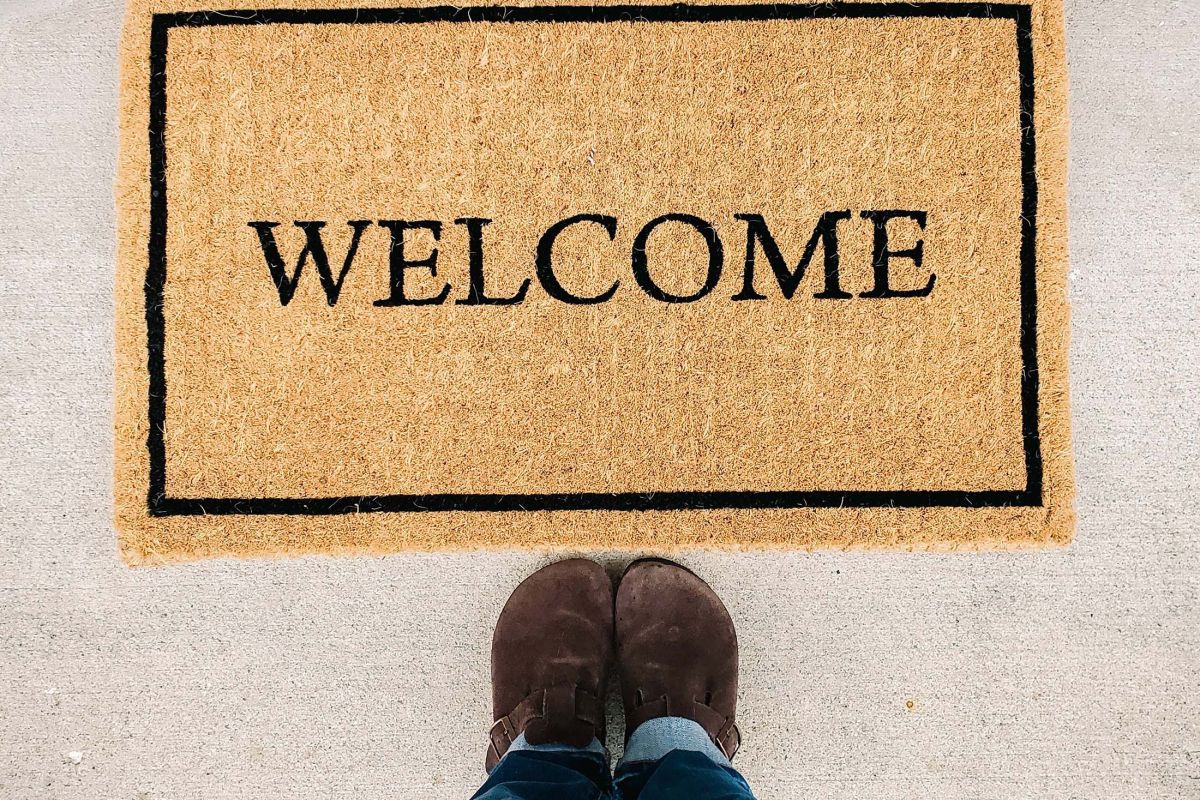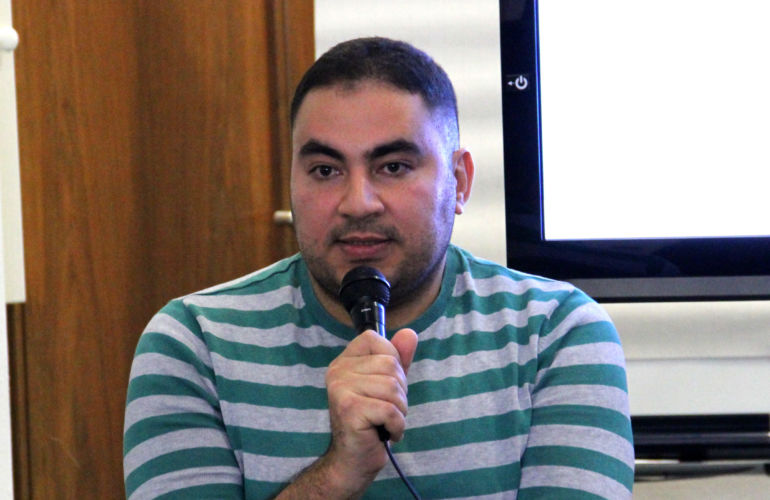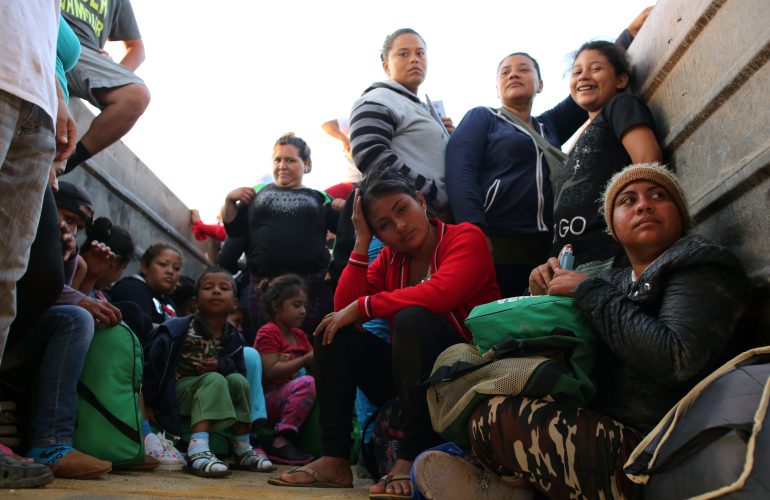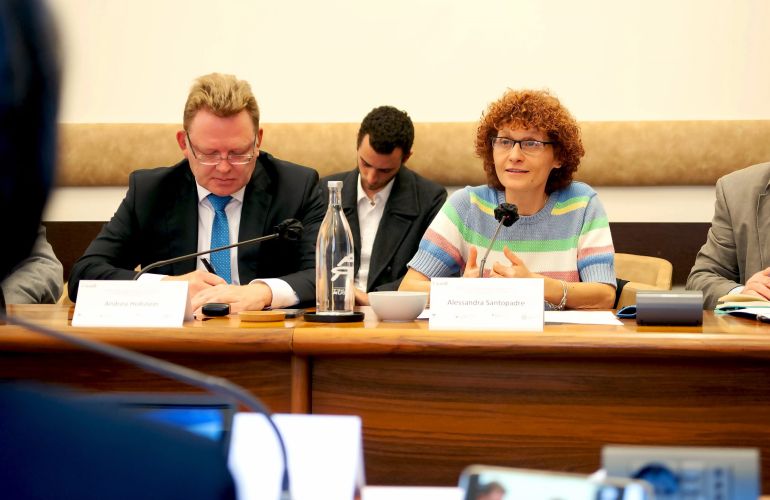Exchanging Expertise to Ensure Strong and Sustainable Community Sponsorship for Refugees
ICMC and the Canadian Embassy to the Holy See co-organize a hybrid workshop on ensuring the long-term viability and expansion of community sponsorship around the world, on 26-27 September 2022.

On 26-27 September 2022, ICMC and the Canadian Embassy to the Holy See co-organize the hybrid in-person/online workshop ‘Building the Future through Community Sponsorship of Refugees: comparing experiences and learning from each other’. The event will be co-sponsored by the British, U.S., German, and Italian embassies to the Holy See.
From Canadian beginnings, community sponsorship is now implemented in almost 20 countries across four continents. The 2018 Global Compact on Refugees (GCR) calls on states to establish private or community sponsorship programs, and community sponsorship is a key tool in achieving the GCR’s 2028 vision of 3 million refugees benefiting from resettlement (1 million) and complementary pathways (2 million).
Also referred to as private sponsorship, community sponsorship can broadly be defined as ‘a public-private partnership between governments and private or community actors’. Governments facilitate legal admission for refugees, and private or community actors provide financial, social and emotional support to admit, settle and integrate refugees into the community. By engaging local communities in welcoming refugees, community sponsorship also provides valuable opportunities to build solidarity, counter racism and misinformation, and generate a whole-of-society approach to caring for refugees.
At this crucial moment for the development of community sponsorship around the world, the 26-27 September workshop will enable discussion and exchange on ensuring the long-term viability and expansion of community sponsorship around the world. The agenda includes civil society contributions from five countries where community sponsorship is active but at different levels of development and implementation, and attendees are drawn from grassroots and faith-based organizations, non-governmental associations, national governments and international organizations.
The private and community sponsorship model has for the past 40 years been pioneered in Canada, via its national Private Sponsorship for Refugees (PSR) program. The program is diverse in how it engages receiving communities and individuals. Sponsors can be groups of five citizen volunteers or a local organization or association, with the financial and settlement capacities to receive and support sponsored refugees, or organizations with agreements to manage a certain number of sponsorships for the Canadian government. Since it was established in 1979, Canada’s PSR program has welcomed more than 327,000 refugees, and now accounts for more than 50% of refugees resettled to Canada.
In other States with an involvement in community sponsorship, stakeholders have developed cooperation frameworks, funding models and approaches that best suit their specific contexts and capacities.
Since 2016 in Italy, Caritas Italia has led the implementation of several humanitarian corridor initiatives to receive refugees living in poor and/or protracted circumstances in Lebanon, Ethiopia, Niger and Pakistan. Refugees are admitted via humanitarian visas, and Caritas works with the Community of Sant’Egidio to welcome those arriving and support their settlement in Italy. Citizens, faith-based organizations and other civil society organizations contribute to the program, which is entirely financed by the organizations involved.
In Spain, during 2019-21 the government of the Basque region implemented the country’s first pilot sponsorship program. Five local sponsorship groups in five municipalities hosted the initial arrival of five Syrian refugee families (29 individuals), with each group sourcing accommodation and providing a €10,000 contribution to the families’ support. The Basque government in turn committed €300,000 for refugee support across a 27-month period, contributing to families’ rental and living costs and enabling the creation of a staff position to coordinate and support the work of sponsoring groups. An evaluation of the pilot program was published in April 2021, and contains many valuable lessons to improve and expand community sponsorship in Spain and beyond.
- For additional information on the event, consult the event programme, available in English, French, and Italian.
- Register for online participation to the event, which will take place from 3pm to 6pm CET on Monday, 26 September and Tuesday, 27 September, through this link. Simultaneous interpretation is available in English, French, and Italian.
Within the European Union, ICMC Europe’s Share QSN program supports pilot and ad-hoc sponsorship initiatives to develop into sustainable, community-driven programs. QSN is implemented from January 2021 to June 2023, and is co-funded by the European Union’s Asylum, Migration and Integration Fund (AMIF)



